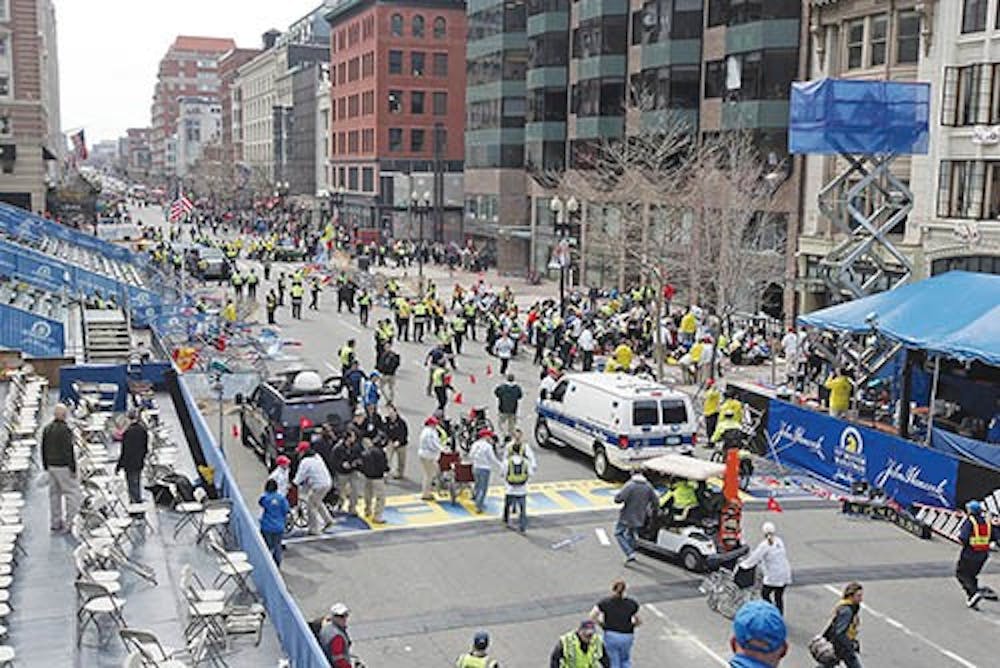Speculations continued to run wild Tuesday after the Boston Marathon bombing, but Ball State professors said they stick to the facts when creating an interpretation of Monday’s events and explaining how to move forward.
John Pichtel, director of Emergency Management and Homeland Security programs, said one of the first things to do is look at the explosive devices used.
“We can learn a great deal about the perpetrator by looking at the devices built,” he said.
According to The Associated Press, the explosives used in the blast was black powder, which Pichtel said is inexpensive and readily available from local firearm stores.
“Black powder-based bombs usually imply a low-budget operation and minimal training, carried out by perhaps one person or a small group. These devices are simple and inexpensive to construct and are easily hidden,” Pichtel said. “Latest reports state that pressure cookers were used to store the charge plus shrapnel including ball bearings and nails — similar devices have been used in Afghanistan, India and Pakistan.”
He said emergency responders will be piecing together bomb evidence in the coming days, as well as collecting photographs and security camera footage to create a more complete profile of who carried out the attack.
“If the bombs were placed by a so-called ‘lone wolf,’ that person will do all [he or she] can to avoid detection and plan to commit a similar crime at another location,” Pichtel said. “... I must point out, there will always be exceptions to the data and ‘rules of engagement’ by terrorists. There are few black-and-white answers.”
Joseph Losco, Department of Political Science chair, said the political repercussions are going to differ based on the national identity of the perpetrator.
“If it’s foreign, I’m sure questions will be raised about adequate intelligence and security — domestic means questions [will be] raised about whether enough attention has been paid to domestic terrorism,” Losco said.
Antigovernment “Patriot” groups reached an all-time high in 2012, according to a report released in March by the Southern Poverty Law Center. The report found there were 1,360 Patriot groups last year, 321 of which included militias.
Losco said if lawmakers dismissed similar reports in the past, the Boston Marathon boming will make them rethink or strengthen their stand on several current issues.
“Already the congressman from New York talks about slowing down the immigration bill — would have some negative implications there,” Losco said.
Losco said if this attack was domestic, it may trigger reactions concerning recent debates on gun legislation.
“[The Boston Marathon bombing] will intensify the feelings that are there, it’s not going to change people one direction or another,” he said.
He said for now the most anyone can do is wait for more facts and information to come out, mostly to avoid misinformation or panic.
“The media has been way too far out ahead of this thing; we just don’t know,” Losco said. “The key thing is everyone needs to keep calm and not speculate until we get some definite proof.”


